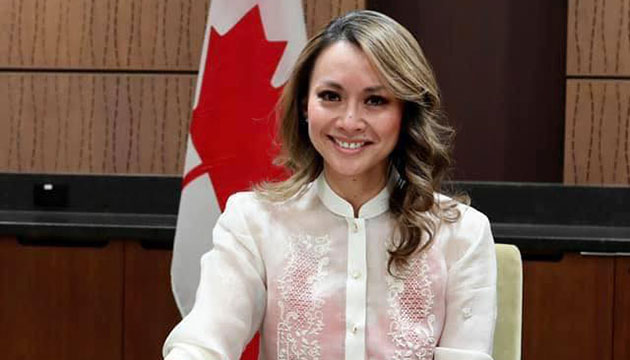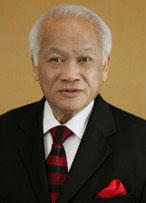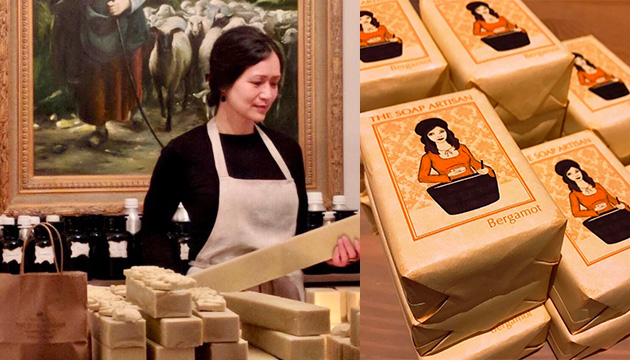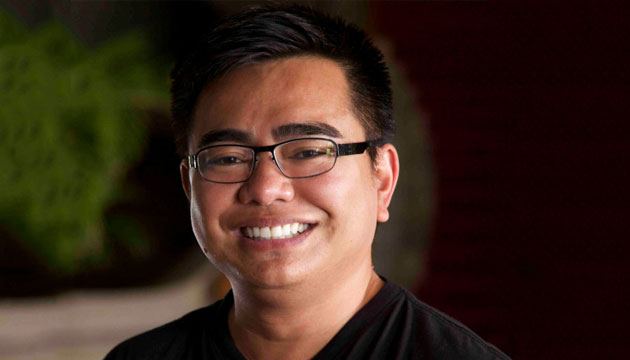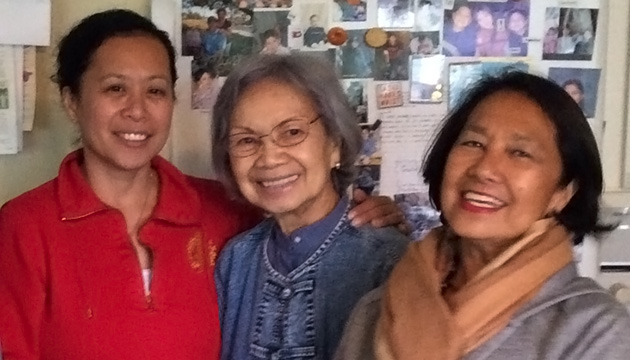Historic Times Once More
Canada’s House of Commons – our nation’s highest elective body and the institutional embodiment of our parliamentary democracy – opens its 44thsession on the 22nd of this month.
It will be no ordinary opening in the life of the Canadian Filipino community nationwide.
On this day, Rechie Valdez – the newly elected MP for Mississauga-Streetsville in Ontario– will take her seat in the House not only as one among 337 colleagues but also as the second Canadian Filipino (and the first Canadian Filipino female) elected to date to Canada’s Parliament. The first is with yours truly as the MP for Winnipeg North in Manitoba and occurred a little over three decades ago on November 21, 1988.
With Valdez’s electoral victory this past September 20, our Canadian Filipino community will, again, not only visualize our continuing community’s presence but also realize our collective voice on issues of fairness and social justice. The House of Commons is where the Government of Canada (that is, the Prime Minister and his Cabinet Ministers, all of whom are also MPs) accounts for its policies, programs and governance to all Canadians from coast to coast.
These are historic times, indeed, for our community, which is now close to being a million population in the country.
High expectations and anticipation
Historic times bring new expectations. Welcoming Valdez’ electoral win while simultaneously lamenting our community’s continuing underrepresentation in Canada’s Parliament, Canadian Filipino Net aptly began its post-election editorial, A Canadian Filipino Member of Parliament and yet we’re still underrepresented: “Valdez’s recent victory at the polls was a welcome relief from the long drought of political representation in the House of Commons after Dr. Rey Pagtakhan concluded in 2004 his 16 years of service as Member of Parliament…” It went on to note that it “may very well be the inspiration that other like-minded Canadian Filipinos may need to become more aggressive in their pursuit of a political career in Canada.”
“We should,” concluded the editorial, “as there ought to be more Canadian Filipinos in all levels of politics in the years to come.”
Similar sentiment has been echoed by the Filipino Canadian Political Association. Indeed, expectations from the community are high for Valdez to deliver beyond her geographic constituency. Grant Gonzales, a co-founder of the Association said in a recent interview with reporter Veronica Cusi of New Canadian Media: “…even though she only represents one riding…she has a special responsibility … to make sure that the voice of the broader Filipino community…is heard.”
Valdez herself has accepted the challenge when she shared her goals with Global News soon after the election (I paraphrase): My goal is to listen and learn from my community in Mississauga-Streetsville, as well as from within the larger Filipino-Canadian community, and do my best to be their voice in Parliament.”
The Association also encourages more members of the community to get engaged in politics.
Why then the seeming hesitancy to engage in politics?
I once was posed, not too long ago, a similar question for a serialized interview article for CFNet with author Eleanor Guerrero Campbell. I answered: “I hesitated and agonized long and hard because of the twin images of politics – the ugly and the beautiful; I had known about the unpredictability of political life and the risks that it poses to aspiring politicians and their families… I had heard stories of friendships broken and community camaraderie strained. And I had been keenly aware of the public perception that holds physicians very high in the pedestal of public esteem than politicians who are deemed only above murderers and thieves.”
I now add that had I known then of developments as recently reported in the media, I could have really declined political participation.
Toronto Star columnist Heather Mallick, in her recent opinion piece, With the personalization of politics and hate, what kind of person will be attracted to public office in the future?, made the following three observations: “1) the abuse was thrown at the Alberta Health Minister as he walked with his family on Canada Day…with one of his boys in tears…was appalling;2) activists angry about evictions during the pandemic showed up in a mob at Toronto Mayor John Tory’s downtown home; and 3) Infrastructure Federal Minister Catherine McKenna left politics – “a terrible blow… after years of great achievement” – following “personal abuse and violent attacks at her constituency office.”
These are examples of personal anger that were “directed at the homes and families of elected officials.”
Evidently, the foregoing paint an ugly portrait of politics and could readily dissuade anyone from political participation. The federal government has a duty to confront this urgent threat to our parliamentary democracy.
Politics, like medicine, is a noble calling
This is the beautiful image of politics that I have always nurtured. It made me overcome my initial hesitancy in 1988. I would like us all to understand that, whether we like it or not, politics has an overwhelming influence 1) on the lives of a nation’s people and her institutions, 2) on the civic and educational aspirations of our youth, 3) on the plight of the vulnerable and marginalized sectors of our rank and file, 4) on the security and safety of our seniors, 5) on the stability and strength of our social programs, 6) on the integrity and independence of our judiciary and civil service, and 7) on the prosperity, vitality and very essence of nationhood itself. Hence, the need for greater civic and political participation. Hence, the challenge for us to offer ourselves and serve with integrity.
A political scientist once said: “Politics is about humanity. “How true, indeed.
Things to know in the House
Understanding the many roles of an MP gives the public a better appreciation of their MPs and what to realistically expect from them and, thereby, create a better rapport between constituents and their MPs. All MPs, including the Prime Minister and each Cabinet Minister, have each an electoral district to represent whose population comes to about 100,000 per district.
Imagine the close to a million Canadian Filipinos across Canada calling on Rechie Valdez for their concerns. That would be equivalent to adding 10 more additional districts to her Mississauga-Streetsville constituency. Now we can appreciate and understand her potential predicament. She has said, however, she would like to be a voice for Canadian Filipinos nationwide. We owe her our support.
The MPs have their seats assigned and preferentially grouped according to whether their political party has been asked to form the government (Liberals constitute the Government Caucus) or is acting as the Official Opposition (PC constitute the Official Opposition Caucus) or as the other opposition parties (Bloc Quebecois; NDP, and Green Party) or independent. Non-ministers in the government caucus – also called backbenchers –sit on the government caucus group, starting from near the front bench (reserved for ministers and leaders) and going to the back, according to seniority in the House and in alphabetical order. Hence, do not be surprised if we see Rechie Valdez seated in the back row simply because of the seniority rule and alphabetical order tradition.
Political dreams and roles
Every MP wants to be a cabinet minister. It is a natural expectation. The ambition is engendered not so much about the perks and privileges that go with a ministerial appointment but out of genuine motivation to give back more of oneself at its fullest.
Each minister receives a mandate letter and is guided and assisted in the assignment by professional, non-political civil servants. Best, though, that one has a keen and analytic mind, humility, integrity, decisiveness, enviable work ethic, vision-and-value-driven leadership style, relevant prior work resume, team player, and a deep sense of others. These said, crafting a cabinet is no easy task on the part of the Prime Minister. Many factors are taken into account, including the strengths of the caucus and regional balance. I would not second guess the Prime Minister’s choice. As former Prime Minister Jean Chretien once said: For every minister appointed, ten colleagues will be disappointed.
Parliamentary Secretary (PS) to the Prime Minister and to other Ministers: We can expect 38 MPs will be given the assignments. Whether for one year or longer is fluid. Specific tasks assigned would depend on the Minister. The universal mandate for all PS is to assist the Minister. One PS, I suppose, could initiate a specific initiative and would soon know whether the Minister is appreciative. The one initiative I took as PS to Prime Minister Chretien was appreciated – due more to serendipity, I would say.
Assignments at Standing or Ad Hoc Committees – Officer or Member-at-large: These offer opportunities to learn more about specific issues for policy developments or hold the government to account. Special ad hoc or legislative committees may be created to study specific parliamentary issue or review existing legislation.
Attendance at the House for Quorum: A minimum number of MPs, on rotation, are expected by their respective caucuses to be present in person inside the House’s chamber to ensure quorum for the conduct of House business. MPs, backbenchers and minsters alike, take turns.
Other Specific Activities: MPs have these privileges: 1) make a one-minute statement (called Standing Order 31 Statement) on any subject of their choice; 2) ask a question of the Minister (usually given to members of the Opposition) during Question Period, 3) introduce motions under Private Members Business, 4) introduce a Private Members’ bill; and 4) participate on debate on bills, motions and resolutions that may come to the floor of the House.
MP’s Office Beyond Ottawa – the Constituency Office
This is the venue where the MPs’ constituents can meet with the MPs or their staff to bring both individual and general issues and concerns for resolutions. I established during my time a 6-day office to accommodate my constituents’ needs.
This office will play an instrumental role in arranging the many and sometimes competing invitations to social functions and events at the constituency level.
Range of Issues
Issues that matter to Canadian Filipinos: One could expect to hear request from the Canadian Filipino community, within and beyond the electoral district boundary on immigration (visitors’ visa processing, opportunities from frontline workers, pathway to citizenship for temporary workers, family reunification, voluntary departure order, accreditation of foreign professional and trade credentials, fairness for live-in caregivers), and citizenship applications. Our community has a special interest to be engaged on the agenda of truth and reconciliation with our First Nations.
Interests on affordable housing, day care, climate change, Medicare, pharmacare and recovery from the pandemic would continue to be raised as they were during the campaign.
More opportunities for Canadian Filipinos
The constant presence of Rechie Valdez on Parliament Hill and in the government caucus would, I envision, open the eyes of the government and awaken its consciousness to tap on the talents in our community for suitable placements and to engage the community on issues of common national interests. I identify two areas:
- Need for more Canadian Filipinos in federal agencies and boards and in the Senate: It was more than welcome coincidence that the decade-and-a-half from November 1988 to mid-2004 saw many of the Canadian Filipino community’s best and brightest appointed as judges and members of Citizenship Court, Immigration Tribunals, Veterans Appeal Board, Canada Pension Tribunal, Unemployment Insurance Panels, Canadian Race Relations Foundation), deputy minister and head of the Civil Service Commission, to mention a few examples. Thus, the leadership of the federal government could again be made more acutely aware of available talents from among our community members and the need for more varied representation and perspectives in Canada’s institutions, including in the Senate.
Could we expect renewed federal awareness so much so that there occurs more proactive search for our community members to be engaged in key civic and official roles? The talents, work ethic, dedication to duty, and integrity are plentiful and ready for civil service.
- More engagement by the federal government in community-initiated projects: One specific challenge comes to mind: The federal government could be stirred to take interest and provide resources to ascertain what initiative(s), as an example for our multicultural communities, the Canadian Filipino community has undertaken 1) to inspire our community to take its rightful place in Canadian society (call to civic duty); 2) to raise the profile of Filipinos in Canada (to enhance visibility and profile); and 3) to inform, engage and facilitate inter-actions among Canadian Filipinos coast to coast, and Canadians in general (nationwide engagement within and beyond the Filipino community and the citizenry impact of such engagement).
Summation:
The months and years ahead are, indeed, new historic times for our Canadian Filipino community. Once more we have in MP Rechie Valdez an ever present avenue to have our community concerns and aspirations heard and listened to at the federal level. I have great hopes that Rechie Valdez would reflect our collective voice in the highest elective body in our nation’s capital and succeed in getting the federal government’s dutiful attention to our community priorities.
Meanwhile, we anticipate hearing her Maiden Speech and Debate, her first S.O.31 statement and inaugural Question during Question Period. And we look forward to learning about specific policy initiative she may undertake with our community.


